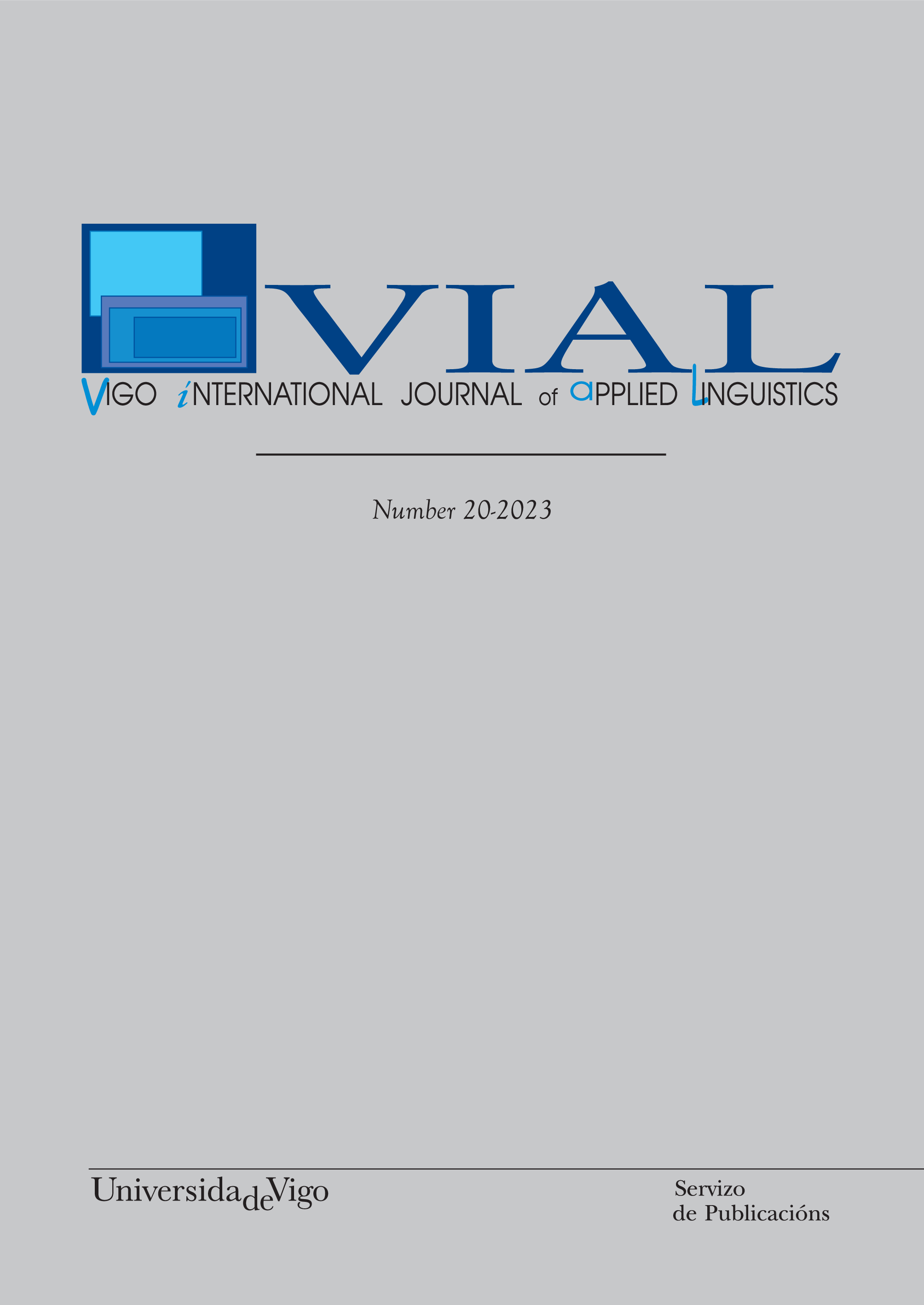How complex is professional academic writing? A corpus-based analysis of research articles in 'hard' and 'soft' disciplines
DOI:
https://doi.org/10.35869/vial.v0i20.4357Palabras clave:
escritura académica, complejidad, corpus, ciencias exactas, ciencias socialesResumen
Este estudio se centra en el análisis de la complejidad lingüística en la escritura académica profesional a la luz de las pruebas empíricas aportadas por un corpus de 1.597.000 palabras de artículos de investigación científica ‘hard’ (ciencias físicas y de la vida) y ‘soft’ (humanidades y ciencias sociales) publicados en las principales revistas sometidas a revisión por pares. En concreto, esta investigación pretende describir las características de la complejidad de los textos escritos por autores/as profesionales y poner a prueba la hipótesis de que la complejidad lingüística varía según las disciplinas. Dado que estudios anteriores han revelado que los índices automáticos de complejidad no consiguen proporcionar una descripción exhaustiva de la complejidad de los textos, en este trabajo la complejidad se mide de dos maneras: cuantitativamente a través de los índices proporcionados por el L2 Syntactic Complexity Analyser de Lu (2010), así como a través de un análisis más cualitativo de una selección de métricas asociadas en estudios seminales a la complejidad clausal y sintagmática. Los datos muestran, en primer lugar, que los índices de complejidad sintáctica (básicamente, la coordinación y la subordinación) son estadísticamente relevantes para la caracterización de las disciplinas específicas de las ciencias ‘soft’. En segundo lugar, se demuestra que existe un continuo entre las subdisciplinas dentro de los géneros ‘soft/hard’. En tercer lugar, este estudio concluye que el discurso académico ‘soft’ demuestra una productividad más estable de las estrategias de complejidad clausal, mientras que los rasgos de complejidad sintagmática son más dominantes en el subcorpus de las ciencias ‘hard’.
Descargas
Descargas
Publicado
Número
Sección
Licencia
Revistas_UVigo es el portal de publicación en acceso abierto de las revistas de la Universidade de Vigo. La puesta a disposición y comunicación pública de las obras en el portal se efectúa bajo licencias Creative Commons (CC).
Para cuestiones de responsabilidades, propiedad intelectual y protección de datos consulte el aviso legal de la Universidade de Vigo.



